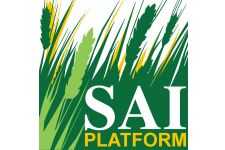Share your coffee stories with us by writing to info@comunicaffe.com.
A new Green Coffee Carbon Footprint Product Category Rule ( CFP-PCR) has been published, providing the first Product Category Rule for the calculation of Greenhouse Gas (GHG) emissions from green coffee production.
The Green Coffee CFP-PCR rule was initiated by SAI Platform’s Coffee Working group members, in collaboration with the Sustainable Trade Initiative (IDH).This is the latest development from SAI Platform’s Coffee Working Group, meeting the need for a PCR in green coffee.
Over an 18-month period, a wide range of stakeholders with interests in the sustainability of the coffee sector worldwide have come together to create a methodology that is truly globally applicable.
The new Green Coffee CFP-PCR will drive consistency in the application of GHG emissions calculations by reducing differences between individual studies and products, and harmonising methodological approaches.
This will support the identification and adoption of genuine mitigation strategies.
It should also encourage behaviour change within the supply chain. While remaining scientifically robust, this CFP-PCR provides the necessary detail to empower informed (mitigation) decision-making, and even to reward positive practice.
Giacomo Celi, illycaffé, Chair of the SAI Platform Coffee Working Group, said: “The guidelines for measuring the GHG emissions for green coffee are a great achievement for the coffee sector and as such ought to be adopted by everybody.
These guidelines are the result of a global and transparent collaboration among numerous stakeholders of the coffee value chain.”
The Project Steering Group providing the leadership and working collaboratively in the development of this CFP- PCR were: illycaffé, Nestle, Tchibo, Mondelez, D.E MASTER BLENDERS 1753 and Lavazza, supported by the relevant sector standard-setting bodies (4C, Fairtrade International, Rainforest Alliance and UTZ Certified).
A Technical Working Group comprising of science and industry specialists from around the world who have experience in Life Cycle Assessment and coffee agronomy, production systems, markets, consultancy, tool building and certification has ensured this CFP-PCR is not only scientifically robust, but can be delivered in the field with minimal barriers.
An example of this is the establishment of allocation ratios for polyculture systems, where the group went beyond traditional PCR development requirements.
The published CFP-PCR and more information is available at http://environdec.com/en/Product-Category-Rules/Detail/?Pcr=8539.















